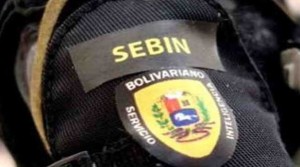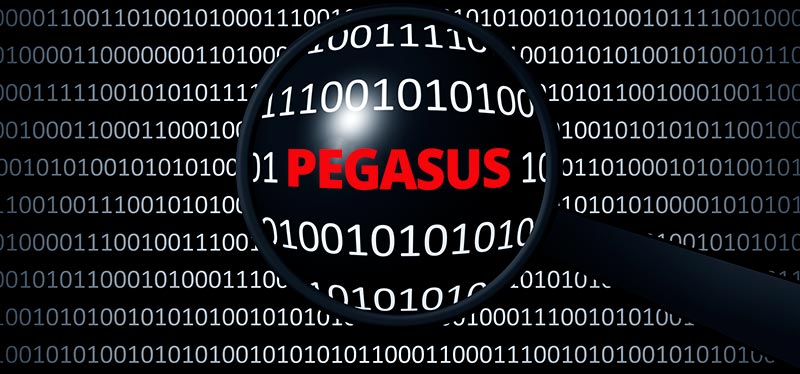As Filipinos choose their next President on Monday, prospect of election of anti-establishment candidate threatens the geopolitical viability of the US’s Pivot to Asia. The Philippines votes for its next President on Monday. Whilst the rest of the world pays little attention, strategists in Washington are worried.
The electoral frontrunner is Rodrigo Duterte, an eccentric, no-nonsense former mayor from the southern island of Mindanao who commands a Trump-like popularity and an equally loyal following. He has shaken Philippine politics to its core over the past couple of months, defying establishment pundits who – just as they did with Trump – wrongly predicted that his campaign would fizzle out over the course of each passing week.
Having totally underestimated just how dissatisfied most Filipinos are with the status quo, Duterte’s rivals missed the chance to outshine him by his anti-system rhetoric. With the race in its final days that is now too late. Instead – also paralleling what happened with Trump – there are desperate calls for coalitions and deals to stop him. Should these fail and should Duterte win on Monday, he promises a geopolitical revolution unlike anything the Philippines has ever seen in its history.
Pivoting To Asia Through The Philippines
The US’s Pivot to Asia was announced by then-Secretary of State Hillary Clinton in the fall of 2011 with the unstated but obvious goal of “containing” China. Key to this strategy is the “rebalancing” – as the Pentagon calls it – of an estimated 60% of its overseas forces to the Asia-Pacific theatre.
Such a major deployment requires many more bases than the US currently has in the region. The US has therefore sought the help of the loyal leader of its former Philippines colony, Benigno Aquino III, to find a way to re-open its bases in the Philippines which under popular pressure were closed in the 1990s.
Using the “China threat” as the ‘plausibly justifiable’ reason for doing so, but aware that the Philippines people still resent their former coloniser and are proud of having forced the US to close its Philippines bases at the end of the Cold War, the US has devised what it calls an “Enhanced Defence Cooperation Agreement” (EDCA) that allows for the “rotational presence” of American troops in at least five separate bases, one of which is located on the strategic island of Palawan that abuts the South China Sea.
Although not legally “permanent” or “officially” controlled by the US, this wink-and-a-nod arrangement would in reality allow the US to redeploy its forces to the Philippines, returning the Philippines archipelago to the role of the US’s second “unsinkable aircraft carrier” (alongside Japan) which it had during the Cold War.
The “China Containment Coalition”
The Pentagon plans to use the Philippines as the maritime lynch of its “China Containment Coalition” (CCC), gathering all of its allies’ navies together and deploying them within provocative striking range of China’s claimed islands.
The other three members of the US-led Quadrilateral Security Dialogue – Japan, India, and Australia – would find their own way to “rotate” their military units throughout the Philippines islands as well, thereby forming the core of the CCC.
To add a regional element to this mix, the plan is for the Philippines and Vietnam, both of which contest some of China’s maritime claims, to intensify their strategic cooperation to the point of a mutual defence treaty. This would draw Vietnam into the network of the anti-China coalition being built up by Washington by using the defence ties between Vietnam and the Philippines to making the members of the Quadrilateral Security Dialogue de facto allies of Vietnam.
Altogether, the Pentagon plan is to produce a critical mass of hostile states near China’s southern maritime border which backed by the US could quickly “counter” any moves by Beijing thereby “containing’ it to the East Asian mainland.
Duterte’s Revolution
Everything was proceeding according to plan until Duterte began to question the “Enhanced Defence Cooperation Agreement”. While his running mate has said Duterte would honour the agreement, he added that he would do so “from a position of strength”.
Back in October 2014, Duterte went on record to say the “Enhanced Defence Cooperation Agreement” should be scrapped if it allowed US servicemen in the Philippines to avoid justice for any crimes they committed.
This pinpoints an issue very sensitive for Filipinos who have vivid memories of how US troops were able to escape punishment for acts of gross misbehaviour whilst the US military occupied its bases in the Philippines. Public anger over this issue was one of the key factors in mobilising local opposition to the bases and explains why many Filipinos oppose their return.
Since it is impossible to imagine such an incident not arising at some point, it is all but inevitable that a situation will occur which will fulfil Duterte’s criterion for scrapping the “Enhanced Defence Cooperation Agreement.” Taken together with Duterte’s assertion that he intends to deal with the US “from a position of strength,” it is easy to see how this might trigger the process of revoking the agreement.
No Filipino politician has previously spoken about the US in this way. Moreover other things he has said also suggest an intention to send a strongly independent line.
Not surprisingly the Pentagon-affiliated publication Starts and Stripes, which writes for US servicemen servicemen and their families, published a scathing critique of Duterte just last week. Here are some excerpts:
“With Filipinos set to choose among five candidates on May 9, Duterte, the incumbent mayor of Davao City who has said the U.S. ‘should not meddle in our affairs,’ holds a strong lead, according to the most recent poll released Sunday.
Duterte is very popular now because people are sick and tired of the same old, same old,” said Virginia Bacay Watson, a professor at the Asia-Pacific Center for Security Studies in Honolulu. “He’s kind of a fresh face, fresh perspective, compared to the other elites who are running.”
Duterte has presented himself to voters as a straight-talker who is not part of the Manila elite – someone who can get things done even if he needs to bend the rules to do so. That includes the country’s foreign affairs.
“He feels that American influence is too strong, that we’re too dependent on U.S. intervention in anything we do,” said Babe Romualdez, an opinion columnist for The Philippine Star newspaper who has interviewed the candidates one-on-one about their platforms on the U.S. military and relations with China.
“He was an activist when he was a student and young lawyer,” Romualdez said. “I get a sense that he’s saying the same things that most of the militants say.”
…In Romualdez’s interview with the front-runner, the candidate said “we really don’t need the Americans to deal with the Chinese because the Chinese want to talk to us alone.”
“If I become president I’m going to reach out to the Chinese and talk to them alone without American intervention,” he said.
Duterte publically opposed the Visiting Forces Agreement with the U.S. – of which the EDCA was an amendment – and claimed in 2013 that he had rejected a request by the U.S. to establish Davao as a base of operations for drones.
Earlier this year, he was quoted saying that although the country was now bound by the EDCA, he had “reservations about the presence of foreign troops.” He added, “We will not allow the building of structures.””
Clearly, Duterte is not the sort of leader the Pentagon envisaged for the Philippines. If he becomes Philippine president there will inevitably be concern in Washington that its elaborate plans for an anti-Chinese coalition in the region could be scuttled.
The New Silk Road Pays A Pit Stop To The Philippines
Worse still for the US, Duterte is saying the Philippines and China could have peaceful and pragmatic relations with each other, engaging in bilateral dialogue over their disputes without the meddling interference of the US. What that would mean for the US is that the Philippines might become a tacit Chinese ally, which would completely upend the regional strategic balance.
That is not what Duterte is actually calling for, but he did say is that he not only would be open to talking to Beijing, but would [go] even further and engage in joint exploration in the South China Sea. Further, in seeking to develop the decades-neglected infrastructure of one of the most promising economies of Asia, Duterte has suggested that he would be open to inviting China to build a railroad and other types of connective projects that Beijing has become globally renowned for. This would of course mean replacing US contractors – traditionally heavily entrenched in the Philippines – with cheaper and possibly more efficient Chinese ones – potentially causing US companies to lose out from billions of dollars of construction deals.
Joint maritime exploration and infrastructure cooperation between the Philippines and China has the potential to turn the entire Philippines archipelago into the latest pit stop for China’s New Silk Road, presenting the US with its biggest geopolitical setback since the reunification of Crimea with Russia.
Concluding Thoughts
The entire future of the US’s Pivot to Asia hangs in the balance as Filipinos go to the polls in what is shaping up to be the most pivotal election in their country’s history.
While the US and its allied politicians are preaching a campaign of anti-Chinese fear mongering and war, Rodrigo Duterte is bucking the system and preaching the benefits the Philippines could reap from more pragmatic policies.
By questioning the need for the Enhanced Defence Cooperation Agreement and subtly threatening to subvert it, Duterte has made himself the US’s enemy number one amongst politicians from the Asia-Pacific. No other individual is speaking out in this way and unlike others who have come before him, he seems to command a high level of genuine people support.
If Duterte succeeds in winning the Presidency, it could represent a paradigm shift in Philippine history and the region’s geopolitics, resulting in the US losing its second ‘unsinkable aircraft carrier’ and having its Pivot to Asia – ie. its plan to “contain” China – fail before it has even properly got underway.
Source Article from https://www.sott.net/article/317950-Philippines-election-threatens-US-anti-China-strategy
Related posts:
Views: 0
 RSS Feed
RSS Feed

















 May 9th, 2016
May 9th, 2016  Awake Goy
Awake Goy 






 Posted in
Posted in  Tags:
Tags: 
















